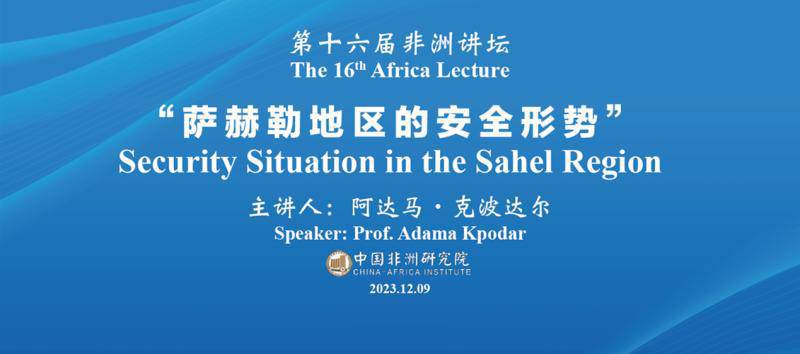
The 16th Africa Lecture “Security Situation in the Sahel Region” was held by China-Africa Institute (CAI) on Dec. 9, 2023. Professor Adama Kpodar, president of the University of Lomé, Togo was invited to deliver a keynote speech. Professor Li Xinfeng, president of the CAI presided over the lecture. More than 70 people including scholars and experts of the CAI and other research institutes attended the lecture online and offline.
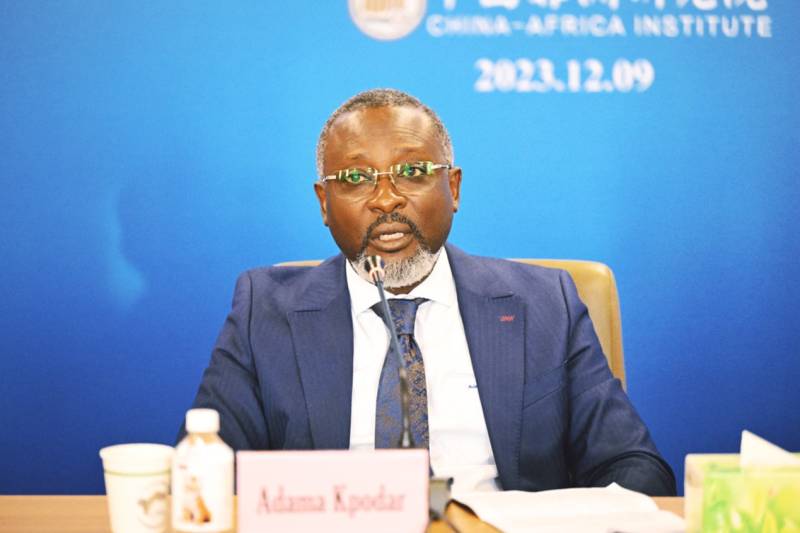
Professor Adama Kpodar is delivering speech
Professor Adama Kpodar focused his speech on the political restructuring of the Sahel countries. He pointed out that after becoming independent, the Sahel countries developed their political reforms in three stages: the period of military dictatorship (from post-independence to early 1990s), the period of multi-party democratization (from early 1990s to the first decade of the 21st Century) and the post-democratization period (from the first decade of the 21st Century to the present). When transiting from the first to the second period, the Sahel countries witnessed a rapid shift from centralization to decentralization and the prevailing disequilibrium of socio-economic development, contributing to the growth of extremism. Meanwhile, some administrators in the region failed to address the governance and development deficit issues in multi-party elections, therefore some marginalized areas and ethnic groups were forced to become followers or advocates of extremism.
The extremism-based terrorism is, by its very nature, the result of disequilibrium of socio-economic development caused by the ineffective governance of the Sahel countries. It is an issue of development seen in the sociocultural field. Professor Adama Kpodar believes that the key to fight against extremism and terrorism lies into the building of a modern nation-state with inclusive development as the support. While dealing with foreign interference, the Sahel countries should strive to promote social and economic reforms, enhance the resilience of development in the course of regional integration and national modernization, and build a strong foundation for security governance. Professor Adama Kpodar stressed the importance of development cooperation between China and the Sahel countries and spoke highly of China's participation in security affairs in the region. He said, it has set a good example for the international community and provided strong support for the Sahel countries to address their development and security deficit issues.
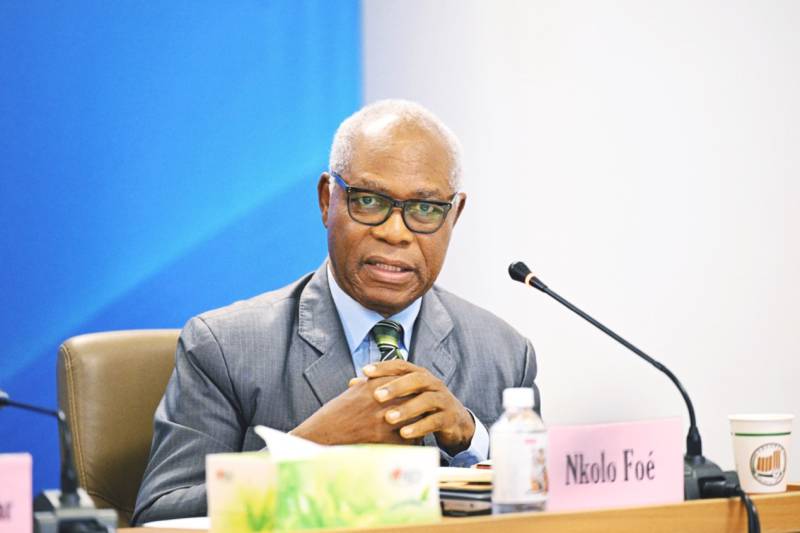
Professor Nkolo Foé is making comments
Professor Nkolo Foé, Doctor of Philosophy at the University of Yaoundé 1 in Cameroon, and the former vice president of Council for the Development of Social Science Research in Africa (CODESRIA) commented on the speech. He said, the security deficit in the Sahel region is essentially the result of the weak governance capacity and the demanding needs of African people for diversified development. It embodies the dialectics of Economical Base and Socio-Cultural Superstructure in the Africa field.
In the modern history of China, especially during the transition from New Democratic Revolution to Socialist revolution, China had endeavored to become a modern nation-state and continued to pursue national modernization by pushing forward governance with the aim to build China a strong and prosperous country and to accomplish national revitalization as well as to fulfil all Chinese people. Those experience has proposed Chinese wisdom, Chinese experience and Chinese solution for the Sahel countries to address the issue of deficit in governance, development and security, said professor Nkolo Foé.
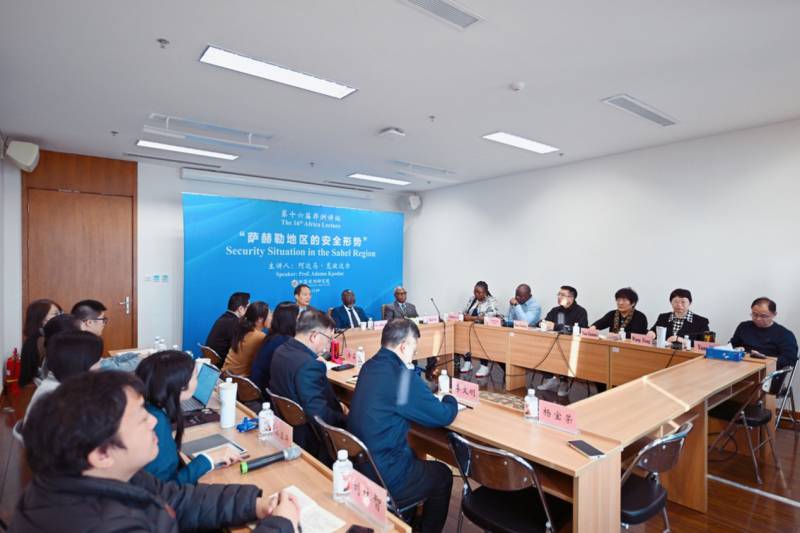
Participants at the lecture
In the Q & A session, the Chinese scholars had an in-depth exchanges with professor Adama Kpodar and professor Nkolo Foé on the security situation in the Sahel region, the political reforms in Francophone African countries, China-Africa security cooperation and other topics.
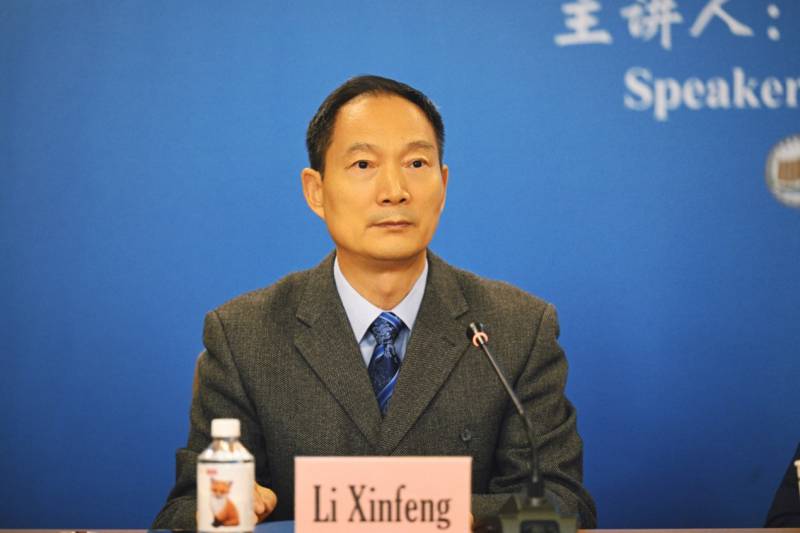
Professor Li Xinfeng is presiding over the lecture
In the concluding speech, professor Li Xinfeng said that the African scholars outlined the causes, characteristics and impacts of the security situation in the Sahel region, and put forward policy suggestions for promoting security governance. Their speeches are insightful and valuable in both theory and practice, helping the Chinese academic community to break western research paradigms and discourse hegemony, while remaining objective in their research about Africa.
He said, the 16th Africa Lecture is not only a good start for exchanges and cooperation between the CAI and the University of Lomé, but also a solid step made by the CAI to promote China-Africa high-level development on people-to-people exchanges in the new era.It is hoped that the lecture could help scholars from China and Togo produce more high-quality research results, and thus contribute to the joint building of a China-Africa community with a shared future.
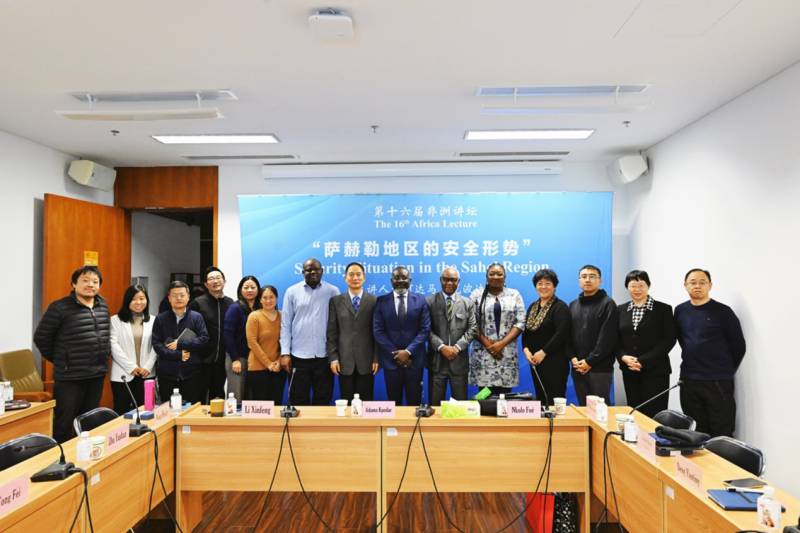
Group photo
